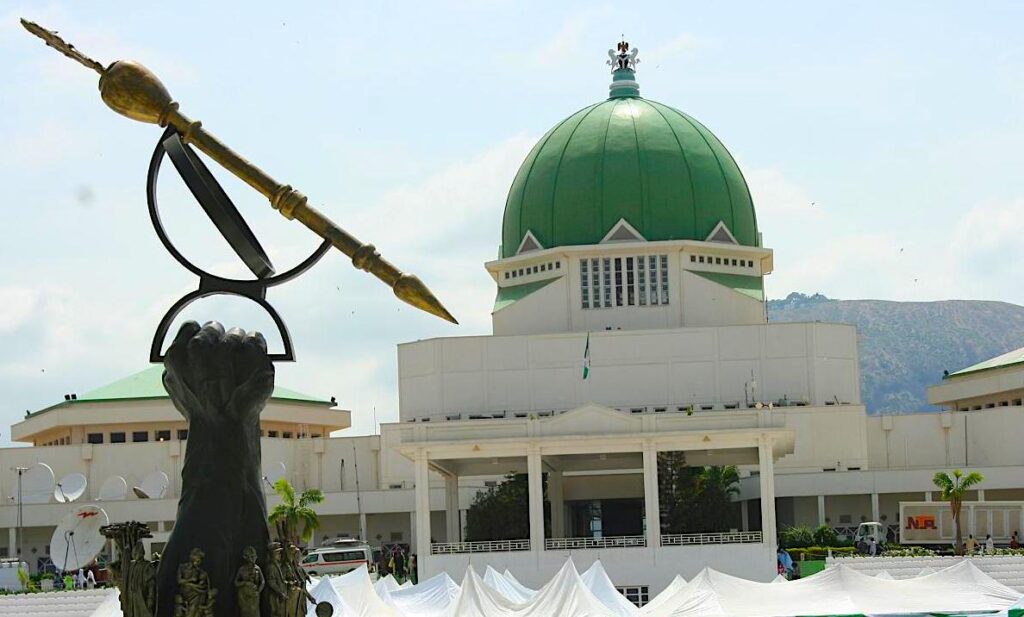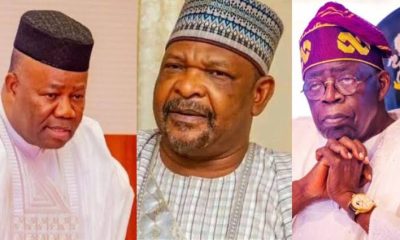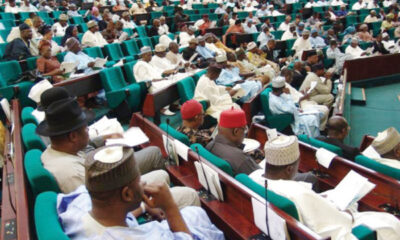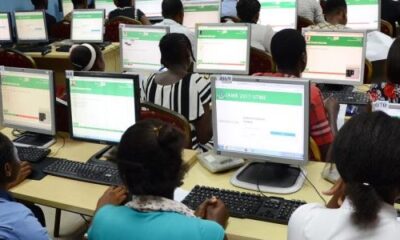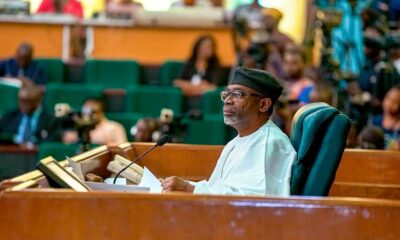Politics
Constitution Review: Senate empowers NASS, State Assemblies to summon President, Govs
*Turns down proposal for special seats for women in legislature
*Rejects VAT inclusion in Exclusive list
*Grants Financial autonomy to LGA, State Assemblies
The Senate, on Tuesday, passed a bill to empower the National Assembly and State Assemblies to summon the President and State Governors to answer questions bothering on security or any other issues on which the National and State Houses of Assembly have powers to make laws.
The bill seeks alteration to Section 67 of the Principal Act by inserting after subsection (3), a new subsection (4).
The new subsection (4) provides: “Nothing in this section shall preclude the National Assembly from summoning the President of the Federal Republic of Nigeria to attend a joint session of the National Assembly to answer questions on national security or any issue whatsoever, over which the National Assembly has powers to make laws”.
The bill further seeks to alter Section 108 of the Principal Act to insert a new subsection (4) to provide: “Nothing in this section shall preclude the House of Assembly of the State from summoning the Governor of the State to attend a sitting of the House of Assembly to answer questions on security or on any issue whatsoever, over which the House of Assembly has powers to male laws.”
Out of a total of 93 registered Senators, 77 voted in favour of the bill to summon the President and Governors, 13 against and 1 lawmaker abstaining, bringing total votes to 91.
The chamber also approved a bill to include Presiding Officers on the membership of the National Security Council.
It also passed a bill to make it an offence, and to provide for the possible conviction of any person who refuses to honour the summons of the National Assembly or any of its committee.
The bill seeks to alter Section 129 of the Principal Act to insert after subsection (2), a new subsection (3).
The new section provides: “Notwithstanding anything to the contrary in this Constitution, any person who after having been summoned to attend, fails, refuses or neglects to do so and does not excuse such failure, refusal or neglect to the satisfaction of the House or the Committee in question, commits an offence and is liable on conviction to such punishment as shall be prescribed by a Act of the National Assembly.
The chamber turned down a bill
The chamber, however, rejected two bills proposed to empower and to attach special recognition to women in Nigeria.
One of the bills is seeking to provide for more seats for women in the National and State Houses of Assembly and the Federal Capital Territory without prejudice to eligibility to contest.
The bill was rejected by senators who voted when it was considered.
It said: “The bill seeks to create a special seat for women in the Senate, House of Representatives and the State Houses of Assembly and the Federal Capital Territory reserved solely for women without prejudice to their eligibility to contest in the existing Senatorial seats in each State and FCT.”
Also, the proposed 35% affirmative action for women in political party administration was also voted against by Senators.
It was earlier reported that the wife of the Vice President, Mrs Dolapo Osinbajo and her entourage were in the Chamber as observers at Tuesday’s legislative proceedings that saw Senators rejecting two bills that concerned the female gender.
Also rejected were bills to alter Part I of the Second Schedule to the 1999 Constitution (as amended) to include Value Added Tax on the Exclusive Legislative List; Removal of Transitional Law-making Powers of the Executive; to provide for Diaspora voting; to grant Mayoralty Status for the FCT; and appointment of Minister from the FCT.
The upper chamber also approved financial autonomy for local government and state legislatures.
The approval followed the voting on the report of the Senate Ad-hoc Committee on the Review of the 1999 Constitution (Fifth Alteration) Bills, 2022 by the upper legislative chamber.
Senators during voting on the report rejected pension for presiding officers of the legislature.
Out of a total number of 88 Senators registered to vote on the bill, 34 voted in support, and 53 against the bill.
Also rejected were bills to override Presidential veto in Constitution Alteration; and to override Presidential veto in respect of ordinary money bills.
The rejected bills require the mandatory four-fifth (votes of 88 Senators) and two-thirds majority (votes of 73 Senators) to pass, respectively.
The bill on Procedure for Overriding Presidential Veto in Constitutional Alteration seeks to provide for the procedure for passing a constitution alteration bill where the President withholds assent.
On the other hand, the bill for an Act to alter the provisions of the Constitution to provide the procedure for overriding executive veto in respect of money bills, seeks to provide for mode of exercising federal legislative power on money bills before the National Assembly.
While 94 Senators registered to vote on the bill to override presidential veto in constitutional alteration, 79 lawmakers of the chamber voted in support and 15 against it. The bill fell short of the needed 88 votes (four-fifth requirement) to pass.
On the bill to override presidential veto in respect of money bills, out of a total of 84 registered Senators, 44 voted in support, and 39 against the bill. The bill also fell short of the required two-thirds requirement (73 Senators) to pass.
In addition, the Senate also rejected bills to provide for the Removal of Presiding Officers of the Legislature; and to Change the name of Barikin Ladi Local Government Area in Plateau State to “Gwol” Local Government Area.
Contact: info@royalnews.com.ng

